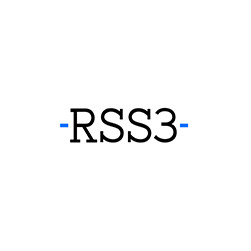
Coin-related
Price calculator
Price history
Price prediction
Technical analysis
Coin buying guide
Crypto category
Profit calculator
What is Sui (SUI)?
Sui basic info
What is Sui?
Sui is a Layer 1 blockchain with its mainnet going live in May 2023. Sui revolutionizes how digital assets should be owned, transferred, and utilized. Developed with a radical new architectural approach, it addresses the limitations of first-generation blockchains by offering fast, private, secure, and accessible digital asset management. It is built on a unique object-centric model using the Move programming language, and boasts of features like parallel execution, sub-second finality, and a rich on-chain asset environment.
Sui is a groundbreaking advancement in blockchain technology, developed by Mysten Labs. The team behind Mysten Labs includes former executives and lead architects from Meta's Novi Research, who were instrumental in the creation of the Diem blockchain and Move programming language.
Resources
Official Documents: https://docs.sui.io/
Official Website: https://sui.io/
How Does Sui Work?
The Sui Network is engineered for high efficiency, featuring proactive communication between requesters (users initiating transactions) and validators (nodes that validate transactions). It attains near-instant transaction finality by leveraging a design that enables parallel processing of non-overlapping states.
In the Sui architecture, "objects" play a pivotal role. Created and managed using the Move programming language, these objects are given a unique ID and stored in the blockchain's distributed ledger. Validators process transactions involving these objects in parallel, thereby increasing throughput. If an object is shared between multiple transactions, Sui employs Bullshark, a high-throughput, DAG-based consensus protocol, to handle the shared resources efficiently.
What is Sui Token (SUI)?
Sui Token (SUI) is the native cryptocurrency of the Sui network. As a utility token, it is used to perform transactions, initiate smart contracts, and interact with various applications on the platform. By September 2022, Mysten Labs had successfully raised $300 million in a Series B funding round, indicating significant interest and investment in the SUI token and the Sui network as a whole.
Which Factors Affect Sui Token (SUI) Price?
Several factors contribute to the volatility of SUI Token's price:
- Market Sentiment: Investor interest can significantly impact the value of SUI. A large funding round or partnerships can boost confidence.
- Adoption Rates: As more users and developers build on the Sui platform, demand for the token could rise, positively affecting its price.
- Technological Developments: Upgrades or setbacks in Sui’s consensus algorithms, like the switch from Tusk to Bullshark, can influence investor perception and thus, price.
- Macroeconomic Factors: Like any other asset, SUI’s price is also affected by broader economic conditions, including regulatory news and market volatility.
- Competition: Being called the "Solana-Killer," how Sui performs in comparison to its competitors like Solana, Ethereum, and others could also affect its price.
Sui's Impact on Finance
Sui is poised to redefine the financial landscape with its ground-breaking architecture that emphasizes scalability, efficiency, interoperability, and security. By offering features like horizontal scaling and parallel transaction processing, Sui enables a level of throughput capable of supporting a global financial network, democratizing access to financial services. The platform's unique sparse replay and object-centric design allow for the streamlined querying of data and seamless interaction between different financial assets, eliminating the need for costly middlemen.
Conclusion
In conclusion, Sui is a next-generation blockchain that promises fast, secure, and efficient digital asset management. Developed by industry veterans at Mysten Labs, the platform leverages innovative features like parallel execution and sub-second finality. With significant financial backing and a utility token gaining interest, Sui is well-positioned to disrupt traditional finance by eliminating middlemen and democratizing access to financial services. It stands as a promising leader in the evolving blockchain landscape.
Related Articles about SUI
Announcing Sui (SUI) Listing on Bitget: A New Era of Object-Centric Blockchain
SUI supply and tokenomics
Uniqueness
Through features such as horizontal scaling, composability, sparse replay, and on-chain storage, Sui’s architecture solves pain points common to first generation blockchains.
Horizontal Scaling
On the Sui network, each group of transactions process in parallel, as opposed to the bottlenecking that occurs in some earlier blockchains due to any lack of distinction between the various objects, resources, accounts, and other components.
Composability
In Sui, unlike most other blockchains, one can directly pass an asset (such as an NFT), directly into a function argument. Sui’s object-centric approach also allows for more esoteric data structures, and the ability to store assets inside such data structures, or in an asset itself.
Sparse Replay
Naturally, a blockchain provides a ledger of every single transaction. For a Sui-specific example, game builders don’t need to track transactions interacting with unrelated dApps. Because querying on-chain data can be expensive, products on Sui will be able to follow the evolution of the objects in this game, without digging out the data from the Merkle tree.
On-Chain Storage
Because assets are directly stored as objects on the Sui blockchain, they are never subject to Merkle tree indexing. Storing assets directly on-chain is used in tandem with conventional means, such as IPFS, to scale the problem of on-chain storage, as it is much cheaper to directly update assets on-chain.
Token utility
The Sui economy is characterized by three main sets of participants:
- Users submit transactions to the Sui platform in order to create, mutate, and transfer digital assets or interact with more sophisticated applications enabled by smart contracts, interoperability, and composability.
- SUI token holders bear the option of delegating their tokens to validators and participating in the proof-of-stake mechanism. SUI owners also hold the rights to participate in Sui’s governance.
- Validators manage transaction processing and execution on the Sui platform.
The Sui economy has five core components:
- The SUI token is the Sui platform’s native asset.
- Gas fees are charged on all network operations and used to reward participants of the proof-of-stake mechanism and prevent spam and denial-of-service attacks.
- Sui’s storage fund is used to shift stake rewards across time and compensate future validators for storage costs of previously stored on-chain data.
- The proof-of-stake mechanism is used to select, incentivize, and reward honest behavior by the Sui platform’s operators — i.e. validators and the SUI delegators.
- On-chain voting is used for governance and protocol upgrades.
Token governance
Protocol upgrades and other Sui governance changes are passed through on-chain voting proposals. The SUI token is useful in that it delivers token holders with the ability to participate in this process. Further details on Sui governance will be released over the upcoming weeks.
Links
What is the development prospect and future value of SUI?
The market value of SUI currently stands at $10.67B, and its market ranking is #11. The value of SUI is widely recognized by the market. When the bull market comes, the market value of SUI will likely continue to increase.
Moreover, if SUI can play a greater role in practical applications, such as Sui builders fully leveraging the potential of SUI, partnering with more businesses, and increasing its user base, the long-term value of SUI will be significantly enhanced.
Is SUI worth investing or holding? How to buy SUI from a crypto exchange?
How to get Sui through other methods?
What is Sui used for and how to use Sui?
Sui Wiki
Learn about other cryptos












New listings on Bitget
Recently added coin prices
MoreTrending coin prices
MoreWhere can I buy Sui (SUI)?
SUI resources
Tags:





























